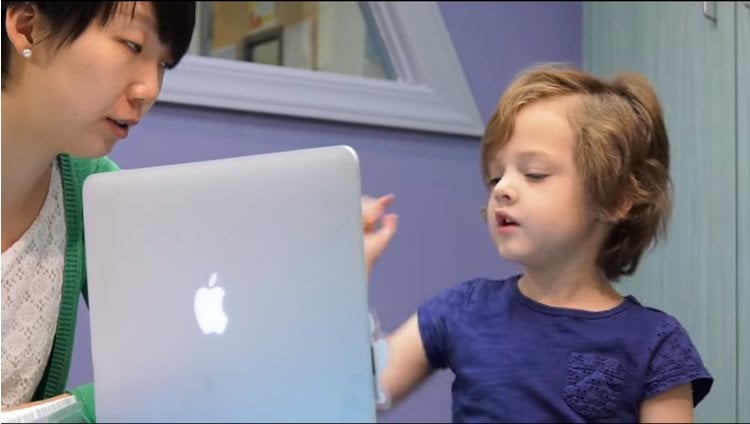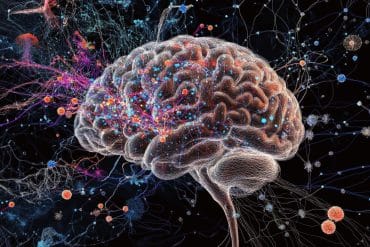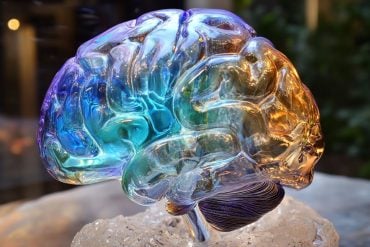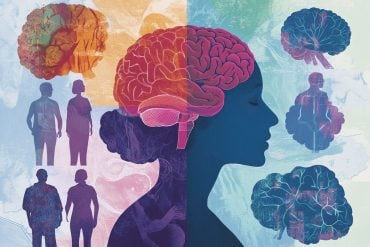Summary: Researchers report they have been able to help kindergarten aged children to improve their arithmetic performance with the help of a simple computerized numbers game.
Source: Johns Hopkins University.
Although math skills are considered notoriously hard to improve, Johns Hopkins University researchers boosted kindergarteners’ arithmetic performance simply by exercising their intuitive number sense with a quick computer game.
Math ability is not static—it’s not the case that if you’re bad at math, you’re bad at it the rest of your life. It’s not only changeable, it can be changeable in a very short period of time,” said Jinjing “Jenny” Wang, a graduate student in the Krieger School of Arts and Science’s Department of Psychological and Brain Sciences. “We used a five-minute game to change kids’ math performance.”
The findings, due to appear in the July issue of the Journal of Experimental Child Psychology, are now available online.
Humans and animals are born with an intuitive sense of quantities and can demonstrate this knowledge as infants. For instance, when presented with a choice between a plate with a few crackers and another with more of them, even a baby will gravitate to the option with more. This intuition about number is called the “approximate number system.”
Although this primitive sense of number is imprecise, and therefore quite different than the numerical exactitude of mathematics, studies have shown the two abilities are linked. For instance, researchers from this same research group have demonstrated that a strong gut sense of approximate number can predict school math ability. But until now, no one has shown that grooming that gut sense could make a child better at math.
“That’s the big question,” Wang said. “If we can improve people’s intuitive number ability, can we also improve their math ability?”
The researchers created a five-minute computer game to train the intuitive number sense of 40 five-year-olds. Blue dots and yellow dots flashed on a laptop screen and the children were asked to indicate whether there were more blue ones or more yellow ones quickly, without counting. Children received feedback after each trial. After correct responses, a pre-recorded voice told them, “That’s right.” After wrong answers, they heard, “Oh, that’s not right.”

Some of the kids started with easier questions that gradually became harder. Other kids started with the hard questions, and a third group worked through a mix of hard and easy problems.
After the dots game, the researchers gave all of the children a vocabulary quiz or a math quiz. With the math quiz, derived from a standardized math ability assessment test, the kids were asked to count backward, to judge the magnitude of spoken numbers (“Which is more, 7 or 6?”), to calculate the answer to word problems (“Joey has one block and gets two more; how many does he have?”), and to write down numbers.
Though researchers detected no change in any of the children’s vocabulary skills, the kids who performed the dots game in the proper training fashion — easiest to hardest — scored much higher on the math test, getting about 80 percent of the answers correct.
Although math skills are considered notoriously hard to change, Johns Hopkins University researchers improved preschoolers’ arithmetic performance simply by exercising their intuitive number sense with a quick computer game.
The kids who got the hardest dot questions first, got just 60 percent of the math test right, while the control group kids who got the mix of easy and hard questions got scored about a 70 percent.
It was clear that by improving the children’s number sense, the game helped their short-term math scores, said Lisa Feigenson, a professor of psychological and brain sciences. The next step will be to figure out if there’s a way to use the technique for lasting results.
“These findings emphasize the sense in which core cognition, seen across species and across development, serves as a foundation for more sophisticated thought,” Feigenson said. “Of course, this raises the question of whether this kind of rapid improvement lasts for any significant duration, and whether it enhances all types of math abilities. We’re excited to follow up on these questions.”
The research team also included Darko Odic, a former graduate student in psychology, and Justin Halberda, a professor of psychological and brain sciences, both at Johns Hopkins.
Fuding: This research was supported by National Institutes of Health grant R01 HD057258.
Source: Johns Hopkins University
Image Source: This NeuroscienceNews.com image is adapted from the JHU video.
Video Source: The video is credited to Johns Hopkins University.
Original Research: Abstract for “Changing the precision of preschoolers’ approximate number system representations changes their symbolic math performance” by Jinjing (Jenny) Wang, Darko Odic, Justin Halberda, and Lisa Feigenson in Journal of Experimental Child Psychology. Published online April 8 2016 doi:10.1016/j.jecp.2016.03.002
[cbtabs][cbtab title=”MLA”]Johns Hopkins University. “Simple Numbers Game Appears to Improve Math Skills in Kids.” NeuroscienceNews. NeuroscienceNews, 15 June 2016.
<https://neurosciencenews.com/math-learning-games-4486/>.[/cbtab][cbtab title=”APA”]Johns Hopkins University. (2016, June 15). Simple Numbers Game Appears to Improve Math Skills in Kids. NeuroscienceNews. Retrieved June 15, 2016 from https://neurosciencenews.com/math-learning-games-4486/[/cbtab][cbtab title=”Chicago”]Johns Hopkins University. “Simple Numbers Game Appears to Improve Math Skills in Kids.” https://neurosciencenews.com/math-learning-games-4486/ (accessed June 15, 2016).[/cbtab][/cbtabs]
Abstract
Changing the precision of preschoolers’ approximate number system representations changes their symbolic math performance
From early in life, humans have access to an approximate number system (ANS) that supports an intuitive sense of numerical quantity. Previous work in both children and adults suggests that individual differences in the precision of ANS representations correlate with symbolic math performance. However, this work has been almost entirely correlational in nature. Here we tested for a causal link between ANS precision and symbolic math performance by asking whether a temporary modulation of ANS precision changes symbolic math performance. First, we replicated a recent finding that 5-year-old children make more precise ANS discriminations when starting with easier trials and gradually progressing to harder ones, compared with the reverse. Next, we show that this brief modulation of ANS precision influenced children’s performance on a subsequent symbolic math task but not a vocabulary task. In a supplemental experiment, we present evidence that children who performed ANS discriminations in a random trial order showed intermediate performance on both the ANS task and the symbolic math task, compared with children who made ordered discriminations. Thus, our results point to a specific causal link from the ANS to symbolic math performance.
“Changing the precision of preschoolers’ approximate number system representations changes their symbolic math performance” by Jinjing (Jenny) Wang, Darko Odic, Justin Halberda, and Lisa Feigenson in Journal of Experimental Child Psychology. Published online April 8 2016 doi:10.1016/j.jecp.2016.03.002






